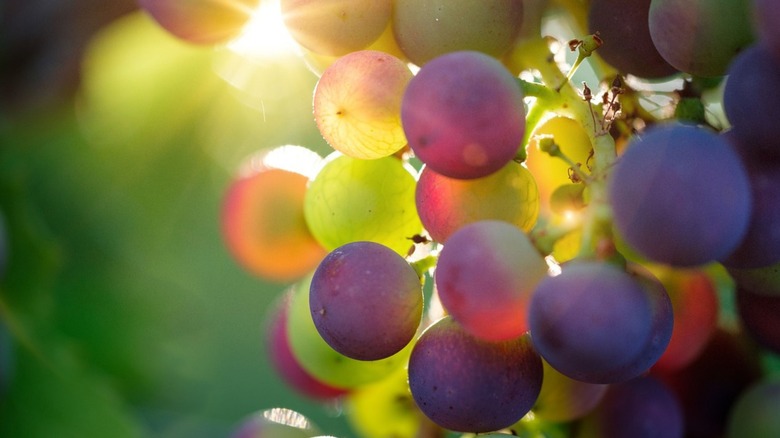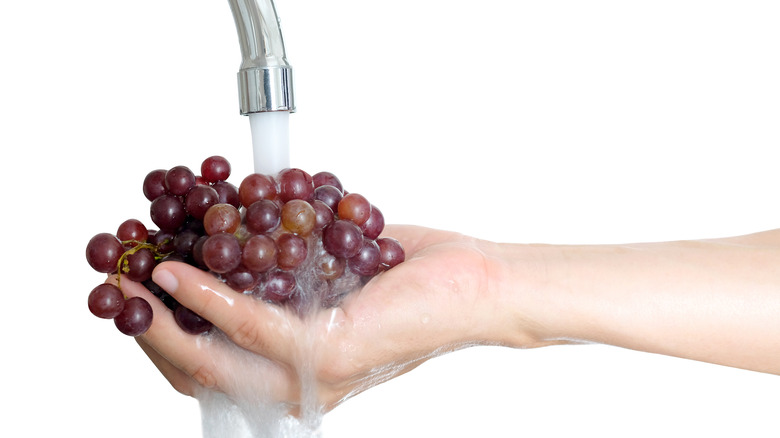How To Store Grapes To Keep Them Fresh For Longer
Food waste is a huge problem in America, with an estimated 30-40% of the country's food supply getting wasted each year. While a lot of this is due to factors like transportation, insect infiltration, or rejection of "ugly" produce, a good portion of it is food simply going bad in refrigerators. But there are tricks you might not be aware of to avoid this and keep food edible for longer, particularly with something like grapes.
There are a bunch of tips to keep grapes fresh for longer, and some are more obvious than others. You probably already understand you should be refrigerating them, but there are others too, such as using the right container (not an airtight one), making sure they get proper air circulation, and washing them only when you're about to eat them. You can even freeze them if you want — grapes take to it surprisingly well, and you don't even need to thaw them before you take the express train to Grapetown.
Refrigeration and air circulation are very important
Refrigeration may seem obvious here, but a lot of fruits don't necessarily need to be refrigerated. Pears, apples, stone fruits, and citrus fruit are all fine outside of cold temperatures, while ripe bananas can sometimes degrade faster in the fridge, as refrigeration can turn their skin prematurely brown. Grapes, though, very much need the fridge — and as cold as you can get it, with around 30-32 degrees Fahrenheit being ideal. They also benefit from high humidity, so store them in a crisper drawer separate from produce that needs less of it. Also, keep them away from anything with a strong smell, because grapes tend to absorb smells around them, and a grape-onion hybrid does not sound like the hot new culinary trend.
The next thing to know is that the container you use here matters. With certain produce, you want an airtight container, but grapes actually benefit from air circulation. Locking them in a closed container causes more and more moisture to collect, hastening their early demise. Happily, you don't even need to do much here, as you can use the ventilated package you likely bought them in. By the same token, you don't want to store them next to a fridge vent, because then they get hit with too much air and wind up drying out.
Only wash your grapes right before you eat them
If you're sensing a theme here related to moisture, well, that's not your imagination — and it leads us to our last important tip. It can be tempting to get produce home and think "Oh, I'll just wash all this at once before I put it away." While that may be a convenient and expedient choice, it's also a bad one, because that moisture is going to collect and cause your grapes to spoil faster. Instead, just wash them right before serving. (Also, this isn't a storage tip, but a health-related one: don't just wash grapes with a quick rinse, as they need to be thoroughly gone over.)
Of course, you can also just skip the hassle and freeze them entirely. Despite their high water content (which is the reason you should avoid freezing something like lettuce), grapes take quite well to freezing. They're still great in smoothies when you do so, and you can eat them while they're frozen (they're surprisingly delicious that way).


